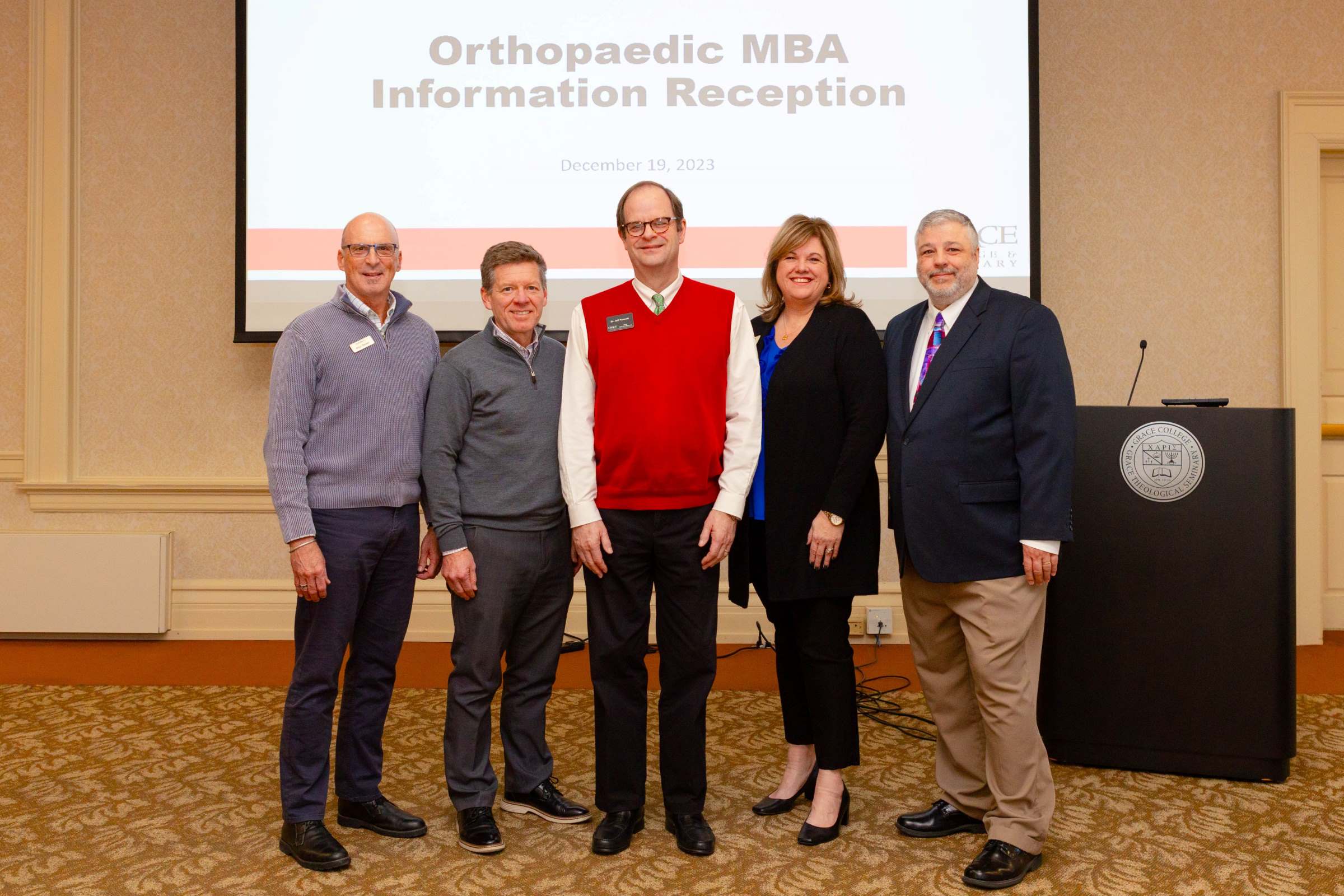December 11, 2020
Become a Program Director with A Degree in Nonprofit Management at Grace College
Tagged With Masters Programs NonProfit Management

Do you have a knack for organizational planning and vision casting? Are you the go-to coordinator for programs and events in your organization, family, or community? If you want to turn your planning and overseeing skills into a career, Grace College’s degree in nonprofit management is for you! Read on to learn more about what it looks like to work in the nonprofit field.
In a nonprofit organization, the program director or manager oversees the coordination and administration of programs that support the organization’s mission. This role involves a broad range of responsibilities and opportunities, including any objectives, strategies and goals that support “efficient, well-run projects that have high impact on the communities the programs target,” according to Commongood Careers, a nonprofit search firm.
The following sections explore more about what it’s like to be a program director in the nonprofit field.
What Does a Program Director Do?
A program director carries out a wide range of tasks that further an organization’s mission. Because no two missions are the same, responsibilities will vary from organization to organization, although there are some common sets of duties and responsibilities in this role for nonprofits. A degree in nonprofit management at Grace will give you a wide scope of a program director’s role, enabling you to apply the content to whatever your context might look like.
The HR Council for the Nonprofit Sector in Canada splits a program director’s duties and responsibilities into five major areas.
1. Plan the program.
The program director plans the delivery of the overall program and activities. This includes developing strategic initiatives and long-term goals that help make the program more successful. Other tasks include developing an annual budget and operating plan, developing a program evaluation framework to analyze strengths and weaknesses, and developing funding proposals.
2. Organize the program.
The program director ensures that program activities are in line with policies and procedures of the organization, as well as relevant legislation and professional standards. Other tasks include documenting program activities and collecting and maintaining client records for statistical purposes.
3. Staff the program.
Along with the executive director, the program director recruits, interviews, and selects staff. Related tasks include implementing human resource policies, procedures and practices, as well as ensuring that personnel files are maintained and kept confidential. Other tasks include establishing and implementing a performance-management process for staff and engaging volunteers for appropriate program activities.
4. Lead the program.
The program director provides direction, input, and feedback to program staff, including ensuring that each member receives orientation and training. Other tasks include communicating with clients and other stakeholders to gain community support for the program, collaborating with other managers, and coordinating delivery of services among program activities.
5. Control the program.
The program director performs a wide range of tasks to ensure program activities are performing as planned. There are many financial responsibilities, including monitoring and approving expenditures, ensuring the program operates within the approved budget, monitoring cash flow projections and actual cash flow, ensuring financial records are updated, and overseeing invoices. Other tasks included writing reports, evaluating program activities and identifying and monitoring risks associated with program activities.
Program Director Salary and Outlook
The median salary for nonprofit program directors is $57,159, based on real-time data from PayScale at time of publication.
Job outlook for nonprofit program directors is positive. “Leadership and strong management skills are continuously increasing in importance to nonprofits,” according to Commongood Careers. “As more nonprofits embrace the importance of well-run and efficient organizations, the focus on promoting leadership and management—and compensating it accordingly—has increased in prevalence.”
Qualifications for Program Directors
Positions generally require at least two years of work experience, according to Commongood Careers. Experience in management or nonprofit administration is preferred. Prospective program directors will likely need a bachelor’s degree in social work, public or business administration, public health or a related field. Some employers will also require a master’s degree. A master’s degree in nonprofit management is the perfect first step if you’re interested in the nonprofit sector.
Becoming a Program Director
Grace College’s online Master’s degree in Nonprofit Management prepares graduates for advancement in the nonprofit sector. When you complete our degree in nonprofit management, you’ll graduate with the ability to take your newly acquired knowledge and skills, combined with your compassion for something greater than yourself, to effectively manage your nonprofit organization.
Learn more about Grace’s online master’s degree in nonprofit management.


